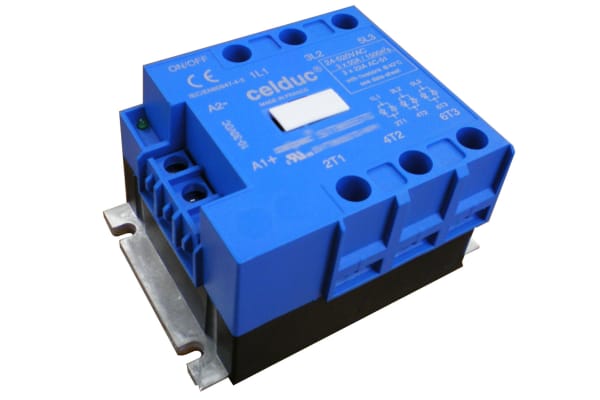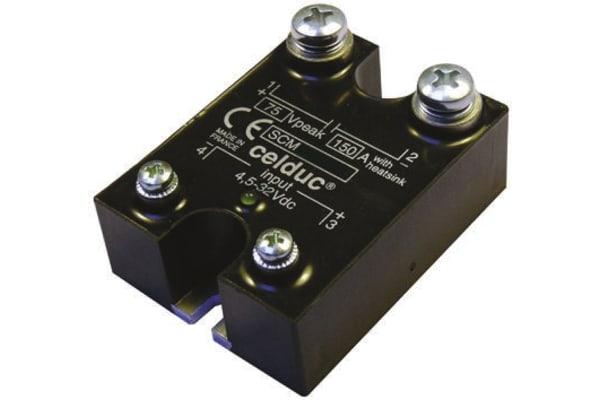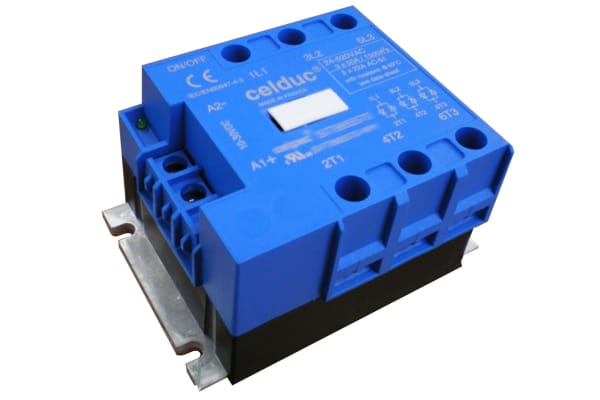Solid State Relays
The main advantages of solid state relays over conventional electro-mechanical relays is that they have no moving parts to wear out, and therefore no contact bounce issues. SSRs are able to switch both “ON” and “OFF” much faster than a mechanical relays armature can move, as well as zero voltage turn-on and zero current turn-off eliminating electrical noise and transients. For more information about solid state relays, please see our comprehensive guide to solid state relays.Solid state relays are available in a range of package options, ranging from just a few volts or amperes to many hundreds of volts and amperes of output switching capability. A small input voltage, typically 3 to 32 volts DC, can be used to control a much large output voltage or current.
-
Celduc 50 A Solid State Relay, Zero Cross, Panel Mount, Thyristor, 520 V ac Maximum Load
IDR4,838,156.14 -
Siemens 10.5 A 3P-NO Solid State Relay, Zero Crossing, DIN Rail, Thyristor, 600 V Maximum Load
IDR5,258,555.26 -
Celduc 150 A Solid State Relay, DC, Panel Mount, MOSFET, 100 V dc Maximum Load
IDR5,269,568.71 -
Siemens 20 A 3P-NO Solid State Relay, Zero Crossing, DIN Rail, Thyristor, 600 V Maximum Load
IDR5,986,806.53 -
Celduc 95 A Solid State Relay, Zero Cross, Panel Mount, Thyristor, 520 V ac Maximum Load
IDR6,508,424.50 -
RS PRO 10 A rms SPNO Solid State Relay, Random, Panel Mount, TRIAC, 280 V ac Maximum Load
IDR0.00








